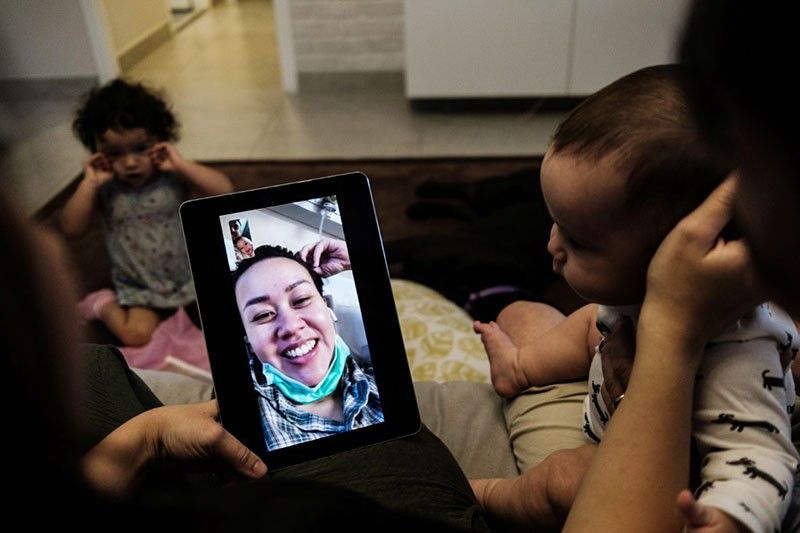UK raises alarm over virus-related syndrome in children

LONDON, United Kingdom — Britain's health minister said Tuesday he was "very worried" at signs of a coronavirus-related syndrome emerging in children but stressed it needed more research and remained very rare.
The state-run National Health Service (NHS) issued an alert at the weekend about a small number of children presenting an unusual set of symptoms, including abdominal pain and inflammation around the heart.
They have required admission to intensive care, according to a report in the Health Service Journal.
"I'm very worried about the early signs that in rare cases, there is an impact of an auto-immune response in children that causes a significant disease," Health Secretary Matt Hancock told LBC radio.
He added: "It's a new disease that we think may be caused by coronavirus and the COVID-19 virus."
But Hancock said that while some of the children who have this new disease tested positive for the virus, others had not.
"We're doing a lot of research now. What I would also stress is that it is rare. Although it is very significant for those children who do get it, the number of cases is small," he said.
The Guardian newspaper reported that there had been at least 12 cases.
According to the Paediatric Intensive Care Society, the NHS alert warned of common overlapping features of toxic shock syndrome (TSS) and atypical Kawasaki disease and blood parameters consistent with severe COVID-19.
TSS is a serious illness associated with infections while Kawasaki causes blood vessels to become inflamed and is mostly found in children under the age of five.
The national medical director for NHS England, Stephen Powis, said on Monday it was "too early to say" whether the new disease was linked to coronavirus but the issue was being looked into urgently.
England's chief medical officer, Chris Whitty, said it was "entirely plausible" that it was linked to COVID-19.
Children have died from coronavirus but serious complications are rare.
"Evidence from throughout the world shows us that children appear to be the part of the population least affected by this infection," said Russell Viner, president of the Royal College of Paediatrics and Child Health.
But he added: "New diseases may present in ways that surprise us, and clinicians need to be made aware of any emerging evidence of particular symptoms or of underlying conditions which could make a patient more vulnerable to the virus."
- Latest
- Trending
































